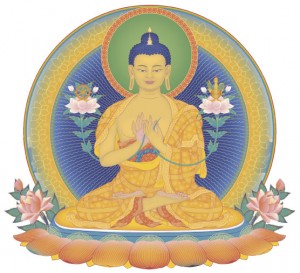Bardo - from Tomb to Womb In Mahayana Buddhism the Bardo is the intermediate state between lives, when the mind experiences a series of hallucinations culminating in its next birth. In contrast, to the western materialist, the state of a 'dead' mind is OFF / Non-Existent / No Activity. It is the ultimate Quietus - no experience whatsoever. To the Buddhist it is impossible to envisage 'no mind'. The state of a disembodied mind is active, hallucinatory and, depending on its karmic imprints, sometimes nightmarish.
Hamlet realised that 'Not to be' is not an option, there is only 'To Be' - in some state or other, pleasant or unpleasant: The Buddhist agrees with Shakespeare, rather than with the materialists, in believing that mental imprints caused by actions in previous lifetimes (karma) cause phenomenal manifestations. And those manifestations continue to be experienced as dreams or nightmares throughout the intermediate state from tomb to womb.
Hell realms Thus conscience doth make cowards of us all. |
To be, or not to be ... that is the question. Thus conscience doth make cowards of us
all,
RATIONAL
BUDDHISM |
